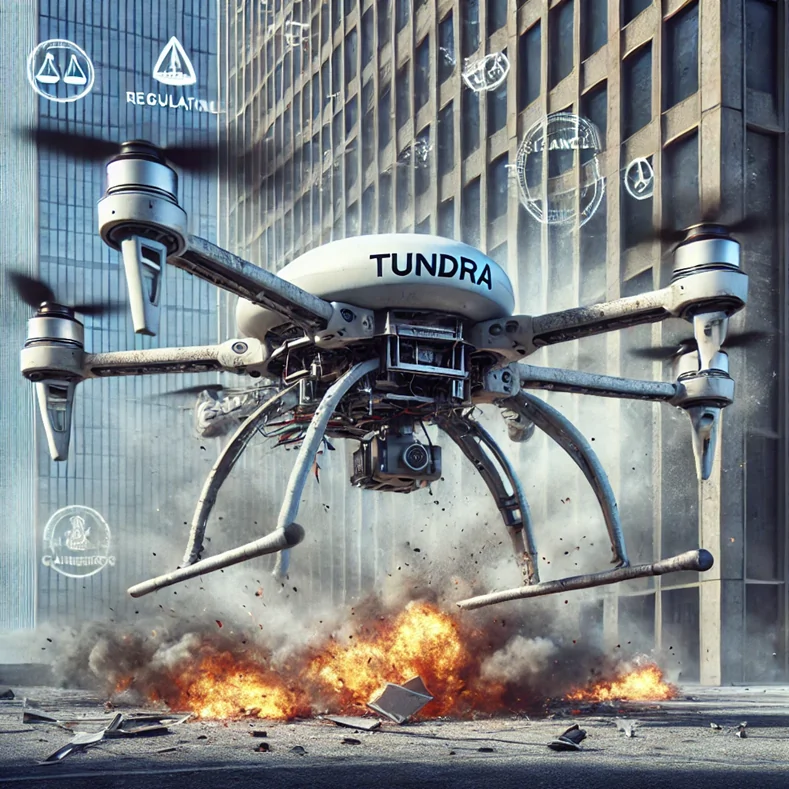The recent drone crash involving H3 Dynamics in Singapore serves as a stark reminder of the legal responsibilities that come with operating unmanned aircraft systems (UAS). On July 19, H3 Dynamics faced a serious incident when their TUNDRA 2 drone lost control shortly after takeoff, crashing into a residential condominium and causing a fire. Although no injuries were reported, the incident has significant legal ramifications for the company and offers crucial lessons for all drone pilots.
Incident Overview
During a series of test flights, the TUNDRA 2 drone—manufactured by Hexadrone but modified by H3 Dynamics—crashed into a building after losing control. The Civil Aviation Authority of Singapore (CAAS) conducted an investigation and uncovered multiple regulatory violations:1. Non-Compliance with Operations Manual: H3 Dynamics failed to follow procedures outlined in their own operations manual submitted to CAAS.2. Unauthorised Drone Modification: The drone was modified without prior notification or approval from CAAS.3. Unlicensed Pilot: The operator lacked a valid Unmanned Aircraft (UA) pilot license.4. Violation of CFMS Procedures: The company did not adhere to the Centralised Flight Management System protocols designed to monitor and manage drone flight paths.
As a result, CAAS has revoked H3 Dynamics’ permission to conduct flight tests and demonstrations and is proceeding with legal action against the company.
Legal Implications
The incident highlights several legal issues that drone operators must be vigilant about:– Regulatory Compliance: Adhering to aviation regulations is not optional. Non-compliance can lead to legal penalties, including fines, suspension of operating licenses, and criminal charges.– Unauthorised Modifications: Altering a drone without regulatory approval can compromise safety and is often illegal. Modifications may affect the drone’s airworthiness and violate manufacturer specifications.– Licensing Requirements: Operating a drone without the necessary certifications is unlawful. Pilots must obtain and maintain valid licenses to ensure they are qualified to handle the aircraft safely.– Operational Protocols: Ignoring established procedures, such as those outlined in an operations manual or systems like the CFMS, can lead to accidents and legal consequences.
Key Takeaways for Drone Pilots
1. Strictly Follow Operational Guidelines: Always adhere to the procedures in your operations manual. These guidelines are there to ensure safety and legal compliance.2. Obtain Necessary Approvals: Before making any modifications to your drone, secure the required approvals from relevant authorities like CAAS.3. Ensure Proper Licensing: Make sure that all drone operators hold valid and up-to-date licenses. Regularly check for any changes in licensing requirements.4. Comply with Flight Management Systems: Utilize systems like the CFMS to monitor your drone’s flight path and promptly address any deviations.5. Stay Informed on Regulations: Laws and regulations governing drone operations can change. Keep yourself updated to ensure ongoing compliance.
Conclusion
The H3 Dynamics incident is a cautionary tale underscoring the importance of legal compliance in drone operations. As drone technology advances and becomes more integrated into various industries, operators must prioritise safety and adhere strictly to all regulatory requirements. Failure to do so not only endangers public safety but also exposes operators to severe legal consequences.
For professional advice on navigating the complexities of drone law, feel free to contact Blakiston’s Chambers. We specialise in helping drone pilots and companies comply with all legal and regulatory obligations.
Richard Ryan is an experienced drone lawyer specialising in unmanned aircraft systems (UAS) and aviation law. He provides expert legal guidance on regulatory compliance, licensing, and operational issues to clients navigating the complexities of drone technology.
Disclaimer: This blog is for informational purposes only and does not constitute legal advice. For legal counsel regarding specific situations, please consult a qualified drone lawyer.
Related
Discover more from sUAS News
Subscribe to get the latest posts sent to your email.

